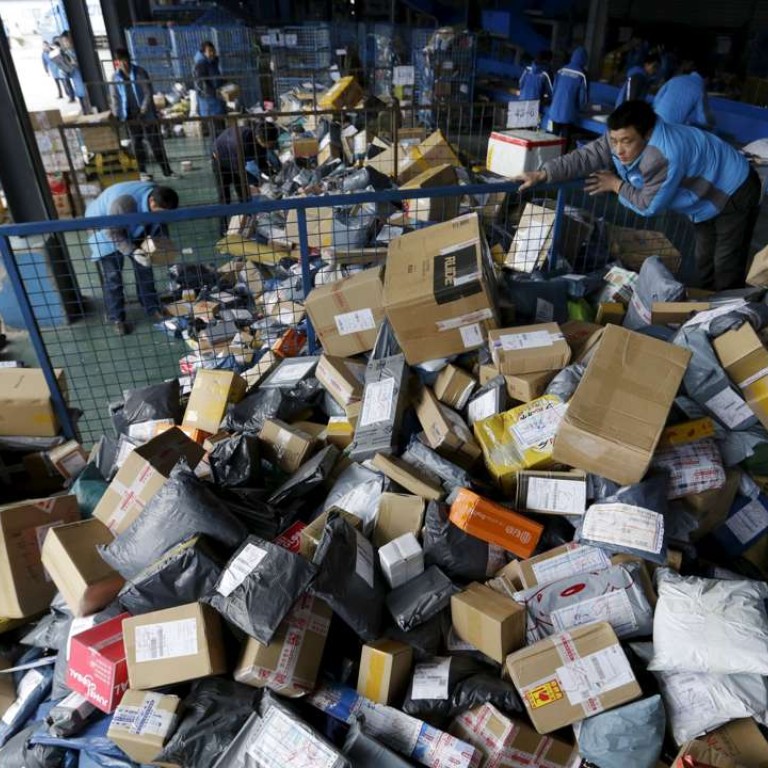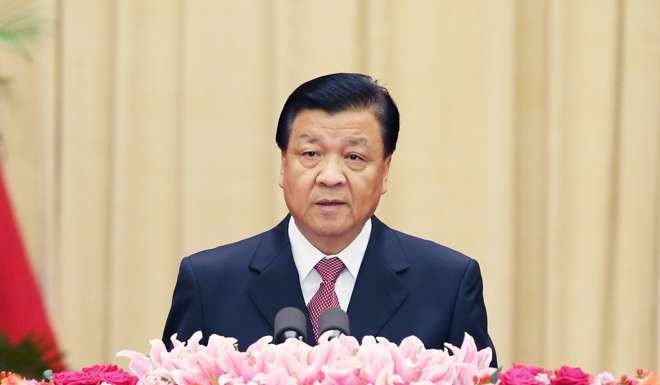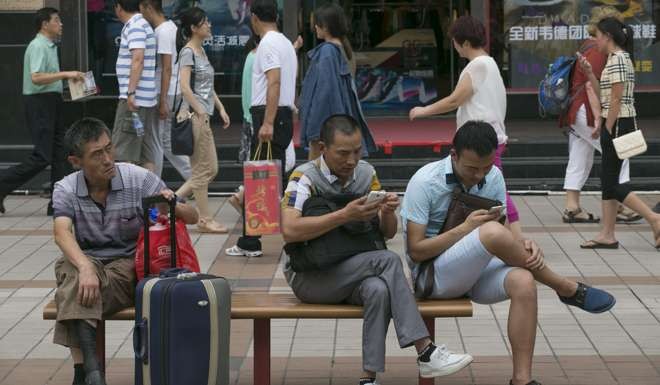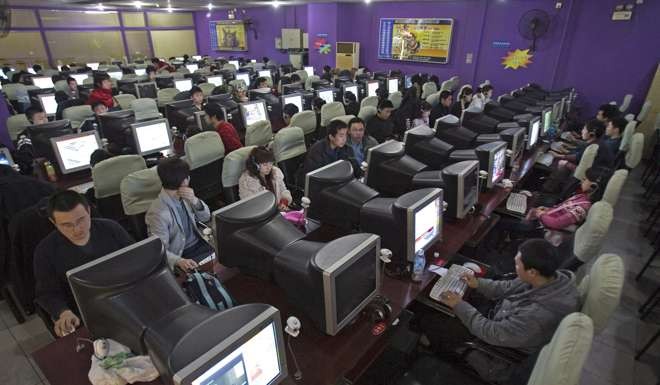
Booming e-businesses amid tight censorship ... can China have it both ways with the internet?
Internet conference sponsored by Beijing likely to highlight competing visions of controlling cyberspace and using it to grow economy
Liu Yunshan, the No 5 in the Politburo Standing Committee and in charge of ideological control, doesn’t look like an internet guru or a man who can influence the future of one of humanity’s great inventions.
Yet the 69-year-old senior cadre will be the keynote speaker at the third World Internet Conference, an event organised by the Chinese government. He will instruct a gathering of leading lights of China’s internet industry, as well as guests from dozens of developing countries, on how to build “a community of common future in cyberspace”.

At last year’s conference, President Xi Jinping voiced the idea of “cyberspace sovereignty”, an unambiguous announcement that Beijing will step up its censorship and control of the internet.
The Chinese Communist Party is trying to match its social control in the real world in the virtual world. The country has a huge online police team patrolling the internet, requires pre-licensing for performing or broadcasting online, and is enhancing the “Great Firewall” as a border control line to keep unwelcomed barbarians like Google and Twitter out.
But the internet is also a booming business and a way of life in China, a country of 1.3 billion people. Literally everyone is now connected via their phones, and online shopping, cashless payment, mobile taxi-hailing and virtual entertainment services in Beijing and Shanghai are as widespread and sophisticated as in New York and Tokyo. Chinese online service firms, including Alibaba – which owns the South China Morning Post – and Tencent Technologies, are now among the world’s biggest and most powerful.
It is against this backdrop that communist party leaders hope to allow a booming business-wise internet while maintaining rigid ideological control.
“China will continue to pursue a leadership role in global cyberspace governance,” said Zhang Lifan, a Beijing-based historian and political analyst.
“But China is unlikely to achieve concrete results, since most developed countries are shunning the internet conference. Those with underdeveloped internet infrastructure are more interested in the economic benefits, rather than internet control.”
Most overseas guests will be from developing countries, from Cambodia in Asia to Comores in Africa. There will be a conspicuous absence of speakers from big name global internet firms like Google, Apple or Twitter.
Alibaba’s Jack Ma, Tencent’s Pony Ma, Baidu’s Robin Li and Netease’s Ding Lei will be the heavyweight participants at the event.
This year’s conference starts on Wednesday in Wuzhen, Zhejiang province. It has sessions on cybersecurity, smart health care, the mobile internet and China’s One Belt, One Road infrastructure scheme.

The theme is “Innovation-Driven Internet Development for the Benefit of All – Building a Community of Common Future in Cyberspace”.
The event would see China seek “enhanced international cooperation” to cope with the “complicated world economic situation, risks and challenges”, said Ren Xianliang, deputy director of the Cyberspace Administration in Beijing last month.
China has been trying in the past few years to strike a deal with conference participants on “cyber governance”. Such an agreement would give international recognition to the way Beijing has been managing the internet, but observers are not optimistic that such common ground can be found.
Huang Chengqing, vice-chairman of the Internet Society of China, said it was unlikely Beijing could achieve any kind of agreement with participating countries during the summit.
The Internet Governance Forum, another annual global meeting that saw wider participation, had never reached any consensus since its establishment in 2006, he said.
“It’s an issue of seeking balance for each country. Different countries have different understandings on what is harmful information, as they have different religions and values, or are at a different phase of growth.”
Xu Longdi, from the China Institute of International Studies, also doubted if China could promote its own system of internet governance to other countries through the forum.
“It’s a nice try to establish a platform, to invite people to speak out on their opinions and show them an open-minded and cooperative China. But we really need time to see whether this can be accepted by others.”

The problem for Beijing is that it wants to contain the role of the internet in fanning radical social changes, in the way social media facilitated the Arab Spring movement. But it also wants to use the internet to upgrade its economy.
“We will try to amplify the positive effects of the internet, and minimise its negative effects,” Ren, the cyberspace official, said.
But this will be hard to do, since restricted information flows hurt economic activities.
For instance, China’s controversial cybersecurity law, which will further strengthen Beijing’s grip on information, was passed this month and comes into effect in June 2017. The law, which required firms to store key data in Chinese servers and hand over encryption codes to authorities, could run against the country’s Industry 4.0 vision of an enhanced industrial economy, according to German ambassador to China Michael Clauss.
“Fast, secure and transnational internet access is a decisive factor for economic growth and innovation. But in China, the balance between security and online innovation is more and more tipping towards security,” Clauss said in a recent interview.
“The digital environment in China is becoming so restrictive, observers are starting to speak of the ‘world’s largest intranet’,” he said.
Additional reporting by Wendy Wu


